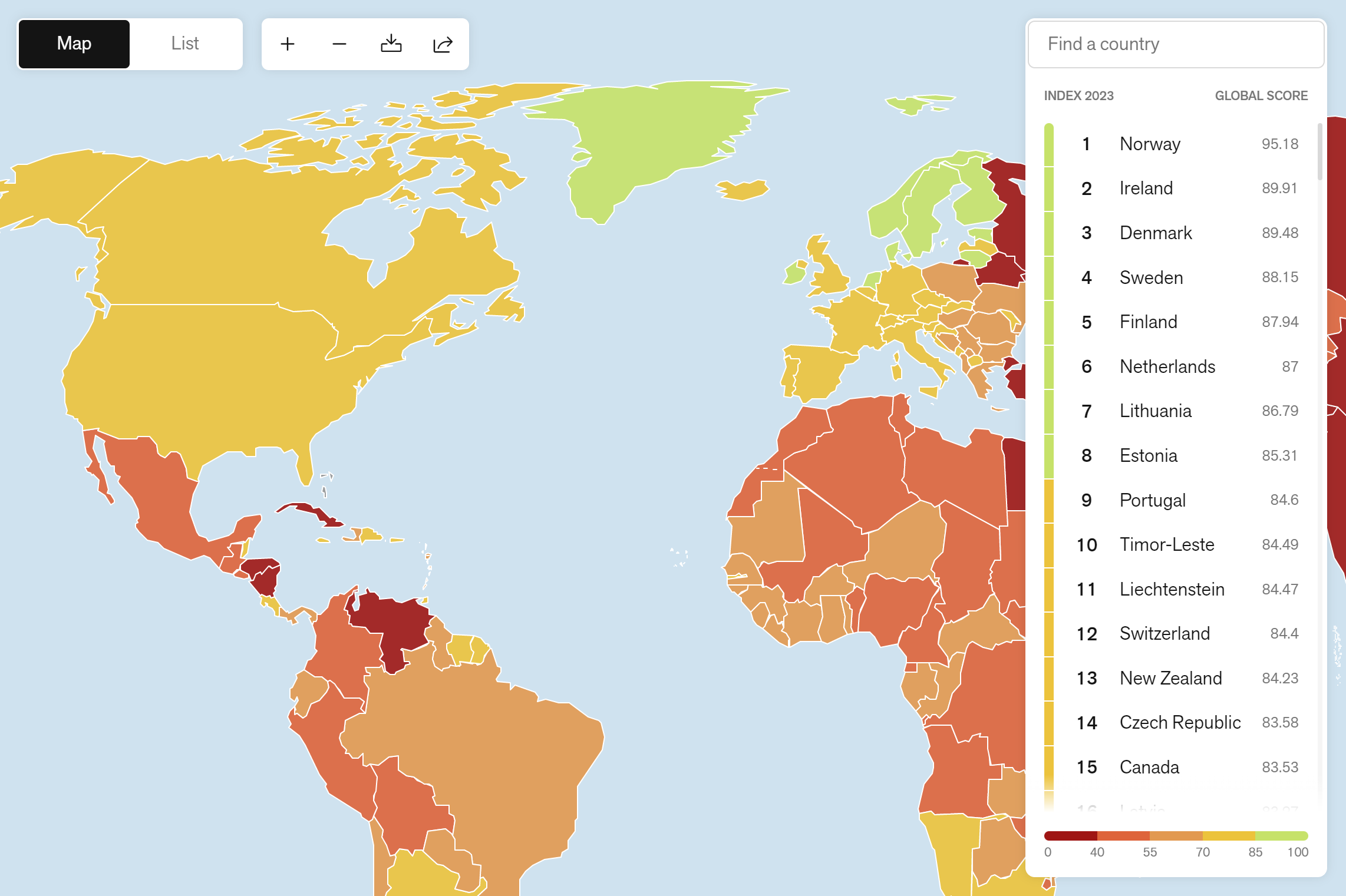Press Freedom in Canada 2023 – Meet Number 15
Media . Politics . SocietyThe World Press Freedom Index measures where countries rank in a global comparison of relative press freedom. These statistics are important as the freedom of information is essential to maintaining well functioning democracies. The ranking for 2023 was released by Reporters Without Borders (hereafter called RSF) on May 3, 2023; World Press Freedom Day. According to RSF, the top three countries for press freedom in 2023 are Norway, Ireland and Denmark. The lowest ranking three countries are Vietnam, China and North Korea. Canada ranks 15th, which is 4 spots better than last year. RSF states that although Canada shows commitment to international press freedom, the coverage of land disputes and the rights of indigenous peoples is still lacking and needs improvement. In 15th place, Canada ranks higher than both its neighbour the USA (45th place) and Germany (21st place). It is worth examining how this ranking may have come to be and what factors are holding Canada back from moving even higher up the rankings.

The RSF mentions on its webpage describing Canada that more than 80% of Canadian media is owned by just 5 corporations. However, the freedom of the press is protected in various legislations from government interference as the freedom of the press is viewed as essential for human rights and fundamental freedoms (RSF). Journalists are also protected by shield laws which protect both them and their sources legally, although they are not always implemented perfectly. While trust in the media has decreased globally and Canada is certainly not an exception, 53% of Canadians believe that established news media is the most credible source of information according to a survey by Kaiser & Partners in 2022.
The Canadian Broadcasting Corporation (CBC), Canada’s primary public broadcasting network, published an article by Brodie Fenlon on May 9, 2023 addressing the current struggles Canada is facing in their press freedoms. Fenlon mentions that the digitisation of journalism and the changes to the journalism industry have carried with them some difficulties for independent fact based reporting. Fenlon also claims that the news industry is currently struggling with “deepening political polarization, disinformation, growing distrust in institutions like the mainstream media, the harassment of journalists and the emergence of artificial intelligence”(Fenlon, 2023). The article states that there is an ongoing problem with online and in person harassment of news professionals intended to intimidate and silence these individuals, and that this is a major issue surrounding Canadian press freedom. This harassment was particularly visible in 2022 during the coverage of the Trucker’s Convoy where anti-mask protestors were often very aggressive towards media personnel, physically and verbally (RSF, 2023). The final issue mentioned in the article is the back and forth between the CBC and Twitter CEO Elon Musk, who implemented a change to Twitter which labels public news broadcasters who receive funding from their countries government as government funded media, which carries with it the implication that the government has editorial control over what is published by the CBC. Fenlon reiterated that this is not the case, as the CBC’s editorial control is protected by the 1991 Broadcasting Act. A back and forth between the CBC and Musk resulted in the CBC label being changed multiple times before the CBC officially announced they were leaving Twitter.

Press freedom is a difficult issue in the modern world. Many of the global superpowers are struggling to maintain previous standards of press freedom as political instability and civil unrest are increasing globally on a daily basis. A career as a journalist is also becoming more dangerous as violence and harassment towards the press is increasing, even in a country like Canada that is ranked highly on the World Press Freedom Ranking. The war in Ukraine and the rapid unraveling of the United States of America could both have difficult implications for the future of the press in Canada, and it remains to be seen whether Canada improves its coverage of indigenous issues and land disputes or follows its neighbour the USA down the charts on the next Press Freedom Ranking in 2024.
Sources:
Reporters Without Borders: https://rsf.org/en/country/canada
CBC Article Fenlon: https://www.cbc.ca/news/editorsblog/cbc-news-press-freedom-2023-1.6834223#:~:text=At%20the%20very%20bottom%20of,last%20year%20to%20rank%2015th.
Screenshot 1 (Government Funded): @banthebbc on Twitter
Screenshot 2 (Government 69%): @Superdavebeast on Twitter